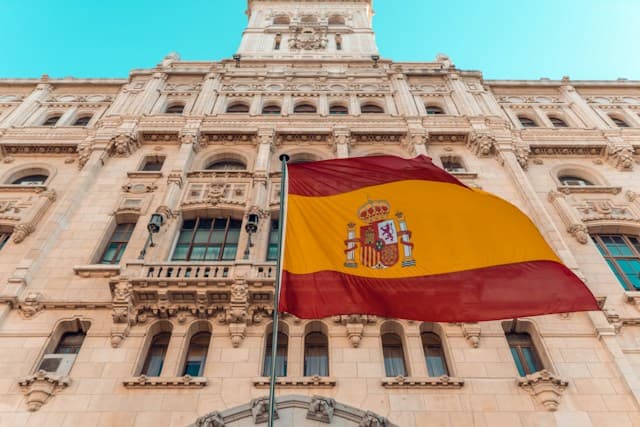A total of 242,342 foreigners obtained Spanish nationality via residency in 2023, double the number granted the previous year (121,891 in 2022). The uptick comes on the back of a government effort to reinforce administrative processes and deal with a massive backlog of cases that leaves pending files loitering in the system for several years, although there are still 218,237 unresolved applications.
Nationality data from Spain's Ministry of Justice shows that in 2023 256,817 nationality applications were resolved, the highest figure in recent years, and 94 percent of applications were granted, a rate roughly in line with previous years. In total in 2023, 7,400 nationality applications were rejected, a slight increase on 2022 (7,078).
Since 2018, 875,757 people have obtained Spanish nationality by residency, something that foreigners become eligible for after more than ten years of legal and continuous residence in Spain.
In the case of refugees it is five years, and those from Latin American countries or others with colonial or historical ties to Spain (including Andorra, the Philippines, Equatorial Guinea, Portugal or Sephardic Jewish nationals) are only required to be resident for two years before they can legally begin the application process.
READ ALSO:
- When can I start counting my residency in Spain towards citizenship?
- How do rules on getting Spanish citizenship compare to rest of Europe?
As such, Latin countries dominated the applications and nationalities granted.
By country, the largest group of beneficiaries came from Mexico (23,571), followed by Colombia (18,343), Venezuela (9,129), Argentina (5,137), Israel (3,935), the United States (2,322), Panama (2,053), Ecuador (1,217), Brazil (1,099) and Türkiye (1,014).
Mexicans, Colombians and Venezuelans made up over a fifth (21 percent) of nationalities granted and almost a third (32 percent) of total applications.
Since 2018, a total of 875,757 people have obtained Spanish nationality by residency.
The increase in resolved applications follows efforts by the Ministry of Justice to try and deal with an enormous backlog of applications clogged in the system, some of which date back several years. There are still 155 pending applications made in 2015, and 1,396 from 2016.
READ ALSO: How foreigners can get fast-track citizenship in Spain
This explains, in part, why despite the fact that the number of favourable nationality decisions grew by more than 100,000 year-on-year, the number of applications only increased by a little over 20,000 in that time (from 170,869 in 2022 to 194,753 in 2023) and speaks to the speeding up of administrative procedures rather than a surge in applications.
Nationality by residency is by far the most common way foreigners gain Spanish nationality. Spain's 2022 Ley de Nietos ('Grandchildren’s Law' in English) opened up another route and allowed descendants of Spaniards who fled Spain during the Civil War and Franco’s dictatorship to claim Spanish citizenship without ever having lived there.
However, by making hundreds of thousands of people around the world (mostly in Latin American countries) potentially eligible for Spanish citizenship, administrative systems have also run into a few problems and the decision has drawn criticism.
There are several other ways to obtain Spanish nationality. If one of the following situations applies to you, you must only have legally lived in Spain for one year until you can get Spanish citizenship:
- You were born in Spain.
- You have been married to a Spaniard for a period of one year and are not legally separated.
- You are the widow or widower of a Spanish citizen and, if upon their death you were not legally separated.
- You were born outside of Spain to a Spanish parent or grandparent who originally had Spanish citizenship.
- Anyone born outside of Spain to a father or mother, grandfather or grandmother, who originally would have been Spanish.

Join the conversation in our comments section below. Share your own views and experience and if you have a question or suggestion for our journalists then email us at [email protected].
Please keep comments civil, constructive and on topic – and make sure to read our terms of use before getting involved.
Please log in here to leave a comment.